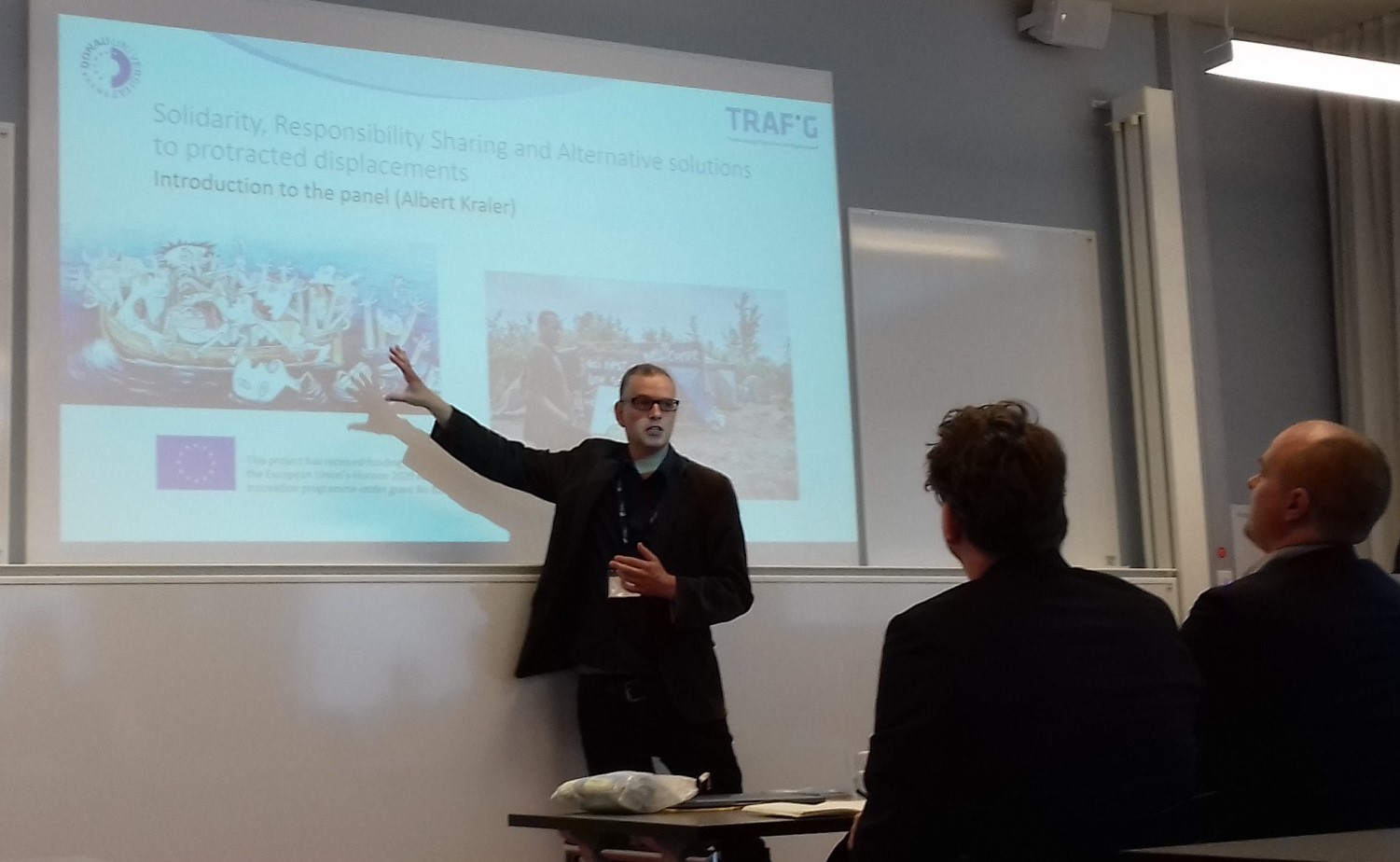TRAFIG panel at IMISCOE Conference
TRAFIG panel on responsibility sharing and solutions to protracted displacement at the 16th Annual IMISCOE Conference in Malmö (27-29 June, 2019)
A panel organised by members of the TRAFIG consortium at this year’s Annual Conference of the IMISCOE Research network in Malmö (Sweden) provided an opportunity to present the TRAFIG concept, to discuss the role of mobility in ensuring broader access to (durable) solutions and to critically examine various aspects of “active refugee admission policies”, including through resettlement and complementary pathways. The discussions of the panel specifically informed about ongoing work on the governance of displacement.
Entitled “Solidarity, responsibility sharing and alternative solutions to protracted displacement – moving beyond classical concepts” the panel was based on a more comprehensive understanding of protection. While protection from persecution and serious harm is certainly needed, refugees aim at rebuilding their lives after displacement and seek access to some form of “solution” that provides longer term perspectives. Such solutions are often discussed from two different angles: a top-down perspective focused on resolving refugee situations from the perspective of states and the international community on the one hand; and a bottom-up perspective focused on the situation of individual refugees and their aspirations on the other hand. It is arguably within the triadic relationship between refugees, host states and the international community that “sustainable solutions” need to be located. Against this background, the four contributions examined different forms of refugee admissions, refugee mobilities as well as translocal exchanges between refugees – as forms and practices of responsibility sharing by and between different actors. The presentations also looked into the question how these different practices and policies of solidarity and responsibility sharing actually help or in themselves provide “durable solutions”.

Benjamin Etzold (BICC) presented key elements of TRAFIG’s conceptual framework calling to rethink durable solutions by explicitly considering displaced persons’ capacities and transnational networks that help them to cope with protracted displacement. Martin Wagner (ICMPD) and Albert Kraler (DUK) critically discussed a framework for a skills-based complementary pathway to protection. They explored the potential of admission schemes based on skills to provide refugees with opportunities to further develop their potentials. Such schemes aim at better matching individual refugees’ skill profiles with labour market needs of potential third countries accepting refugees in order to achieve a more purposeful distribution of refugees between countries. Reflecting more broadly on resettlement and complementary pathways and reframing these as “active refugee admission policies” Olaf Kleist (IMIS) identified a number of qualitative developments in such policies, notably, a growing politicization (and interest), an increasing differentiation of instruments of admission, a growing number of actors involved, and competing policy goals.
Also using “active refugee admission policies” as a conceptual framework Marcus Engler (Independent researcher and consultant) highlighted the role of social class in accessing resettlement or complementary pathways. Both arguably involve a hidden class bias in terms of eligibility criteria (such as integration prospects) and other prerequisites (cultural, social, and economic capital) required to access protection through resettlement and other programmes. Maegan Hendow (ICMPD) noted as discussant the risks of focusing on refugees’ own initiatives and “self-reliance” and voluntary commitments as opposed to states’ obligations to provide protection, while also noting the tendency to use resettlement as a tool of and in conjunction with broader measures of migration management.